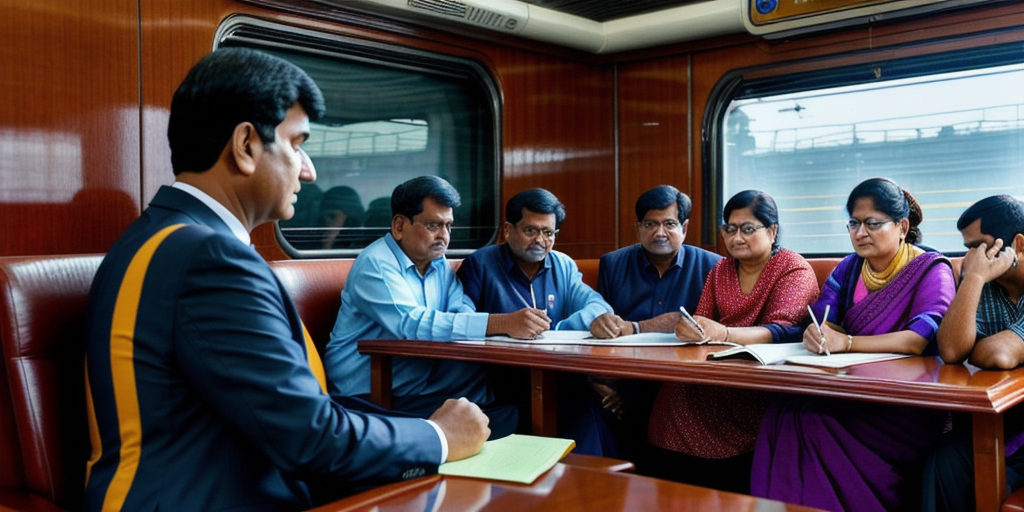
Supreme Court Stays High Court Order Acquitting 12 In Mumbai Train Blasts Case
How did your country report this? Share your view in the comments.
Diverging Reports Breakdown
Supreme Court Stays High Court Order Acquitting 12 In Mumbai Train Blasts Case
The Supreme Court stayed the Bombay High Court verdict acquitting all 12 accused in the 2006 Mumbai train bomb blasts case. A bench of Justices M M Sundresh and N Kotiswar Singh said the high court judgment shall not be treated as a precedent. The court, however, did not stay the release of the accused from prison. On Monday, the High Court had acquitted all the 12 accused, saying the prosecution had utterly failed to prove the case and it was “hard to believe the accused committed the crime” The court also said the explosives, arms and maps recovered during the investigation appeared to be unrelated to the blasts. More than 180 people were killed in the seven train blasts in Mumbai.
A bench of Justices M M Sundresh and N Kotiswar Singh said the high court judgment shall not be treated as a precedent, and issued notice to all the accused in the case. The court, however, did not stay the release of the accused from prison.
The developments came as the top court was hearing a petition by the Maharashtra government challenging the High Court verdict.
More than 180 people were killed in the seven train blasts in Mumbai. On Monday, the High Court had acquitted all the 12 accused, saying the prosecution had utterly failed to prove the case and it was “hard to believe the accused committed the crime”.
Appearing for the Maharashtra government in the top court, Solicitor General Tushar Mehta said: “I am seeking stay, not to bring them back to jail. Certain findings of laws will affect the MCOCA trial. May consider saying they may not be required in jail.”
The court said since all the accused were released, there was no question of sending them back to the prison. “However, on submissions of learned SG, the impugned judgment will not be treated as precedent,” it said.
Justice Sundresh said that he read the case files and learnt that some of the accused are Pakistani nationals.
In its order, the High Court bench of Justice Anil Kilor and Justice Shyam Chandak said: “The prosecution has utterly failed to prove the case against the accused. It is hard to believe that the accused committed the crime. Hence, their conviction is quashed and set aside.”
The court also said the explosives, arms and maps recovered during the investigation appeared to be unrelated to the blasts. The prosecution, it said, could not even prove what kind of bombs were used in the blasts. It subsequently ordered the release of all the accused if they are not wanted in any other case.
Chief Minister Devendra Fadnavis had described the acquittals as “shocking”. “I have discussed with the lawyers, and the high court verdict will be challenged in the Supreme Court,” he said.
On July 11, 2006, seven bomb blasts ripped through separate Mumbai local trains within 11 minutes. Rigged pressure cookers were used for the bombings to amplify the damage caused. The first occurred at 6.24 pm – rush hour due to people returning from work – and the last at 6.35 pm. The bombs were placed in first-class compartments of trains from Churchgate. They exploded near the stations of Matunga Road, Mahim Junction, Bandra, Khar Road, Jogeshwari, Bhayandar and Borivali.
A trial court in 2015 convicted the 12 people in the case. The special court of Maharashtra Control of Organised Crime Act sentenced Faisal Sheikh, Asif Khan, Kamal Ansari, Ehtesham Sidduqui and Naveed Khan to death. Seven other convicts Mohammed Sajid Ansari, Mohammed Ali, Dr Tanveer Ansari, Majid Shafi, Muzzammil Shaikh, Sohail Shaikh and Zamir Shaikh were sentenced to life imprisonment for being a part of the conspiracy.
2006 Mumbai Train Blasts Case: Supreme Court Stays Bombay High Court Order Acquitting 12 Accused
The Supreme Court of India on Thursday, July 24, stayed the Bombay High Court judgement acquitting all 12 accused of the 2006 Mumbai train bomb blasts case. The court, however, did not stay the release of the accused from prison. On Monday, the High Court had acquitted all the 12 accused, saying the prosecution had utterly failed to prove the case.
The apex court has also issued notices to all the accused in the case. The court, however, did not stay the release of the accused from prison. Solicitor General Tushar Mehta, representing the Maharashtra government, told the upper court that while all the accused in the case have been acquitted, the concern lies in certain observations made in the Bombay High Court verdict, which could impact trials in other MCOCA-related cases. The Supreme Court, while staying this part of the High Court’s order, clarified that the Bombay HC judgment will not serve as a precedent in other cases.
The developments came as the top court was hearing a petition by the Devendra Fadnavis-led Mahayuti government challenging the High Court verdict. More than 180 people were killed in the seven train blasts in Mumbai. On Monday, the High Court had acquitted all the 12 accused, saying the prosecution had utterly failed to prove the case and it was “hard to believe the accused committed the crime”.
